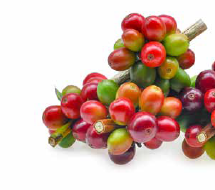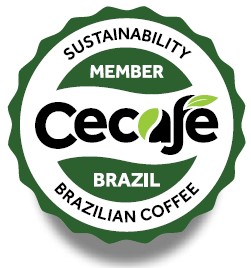
Together with other private coffee organizations that comprise the CDPC – Coffee Policy Deliberative Council, Cecafé has been proactive on several fronts to promote greater dynamism in the ICO by offering products that are tangible and interesting to the private coffee sector.
The document entitled “Brazilian Coffee Chain Proposals to Restructure the International Coffee Organization – ICO” described four pillars to be worked on that were already included in the ICA 2007 – International Coffee Agreement. The document was presented by Ambassador Marco Farani — Brazil’s Special Representative to the International Organizations in London – a supporter and promoter of the country’s initiatives,
The four pillars call for a strategic review on the ways the agency perform, addressing areas such as improved governance and process management; statistics and business intelligence; trade negotiations; and promotion of global coffee consumption.
International Coffee Council (ICC) Decision 125-10 of 27 September 2019 requested the International Coffee Organization (ICO) “to set up a task force with ICO Members as well as representatives of the private sector and supporting organizations to draw up a roadmap and recommend further actions on price levels and volatility as well as long-term sustainability”.
As a result of the work of CPPTF – Coffee Private-Public Task Force, the following thematic areas have been identified:
a) Market transparency and responsible sourcing;
b) Strengthening coffee policies and the institutional environment;
c) Global Financing Mechanisms;
d) Responsible Consumption;
e) Sustainable production and supply;
f) Sector Coordination.
Through Brazil’s representation in London, CDPC private coffee organizations will be able to act proactively. Cecafé, as a representative of the export sector, actively participates in all defined thematic areas.
To start the work, Brazil made vast considerations in the questionnaire targeted to assess current interventions and policies and future commitments in relation to the CPPTF thematic areas. The survey results will be used as the foundation for the development of a roadmap to make the London Declaration and the CPPTF vision a reality.
Among ICO members, Brazil was the country that better demonstrated the efficiency and organization of Brazilian coffees, showing its comprehensive environmental and social policies, projects and programs aimed at sustainability, integration among segments, and policies on production funding, coffee acquisition and industry turnover.
The objective of this action was to position Brazil as a global benchmark, raising the requirements of production and sustainability worldwide. A summary of the points presented follows below:

As an example, the Brazilian Forest Code established in 2012 brought legal security and reinforced the country’s commitment to environmental management. The Code introduces topics such as the country’s area delimitation system and protection of Permanent Preservation Areas – APP and Legal Reserve – LR, the Rural Environmental Registry – CAR and the Environmental Regularization Program – PRA, among other relevant points.
Based on the CAR analysis, we can say that Brazilians preserve 66.3% of their entire territory with native vegetation, including protected areas such as national parks, conservation areas, indigenous reserves and protection areas within rural properties. The world average preservation is about 10% of the total territory.

In the social arena, Brazil has a broad and detailed labor legislation. The Consolidation of Labor Laws (“CLT”) is the country’s main labor instrument, bringing definitions on minimum wage, clear rules on vacation, maternity leave, employment contracts, transportation support, and others.

Funcafé – Coffee Economy Defense Fund is an exclusive source of financing for Brazilian coffee production. The resources are used for granting credit, funding, storage and industry and export incentives.

The fund accounted for investments of over BRL 250 million in research and technology, increasing production with quality, with higher productivity and reduced farming areas. Funcafé’s budget is approximately BRL 6 billion, generating high social and economic impact on coffee production in the states where it is applied.
For the 2020/21 Crop Plan, the federal government made available BRL 236.3 billion to support the national agricultural production, an increase of 6.1% (additional BRL 13.5 billion) in relation to the previous harvest. Of the total, BRL 179.38 billion are earmarked for funding, marketing and industrialization and BRL 56.92 billion for investments.
For the rural insurance 2021, the government made available BRL 1.3 billion. The amount should take in 298,000 policies, with an insured amount of around BRL 52 billion and coverage of 21 million hectares. The

budget for coffee plantations is BRL 5.7 billion.
Small farmers will have BRL 33 billion to be financed by the National Program to Strengthen Family Agriculture (Pronaf), with interest rates of 2.75% and 4% per year for funding and marketing. Medium-sized farmers will be allocated BRL 33.1 billion through the National Program to Support Medium-Sized Farmers (Pronamp), with interest rates of 5% per year (funding and marketing).

The organizations that represent the Brazilian coffee agribusiness develop important sustainable actions. As an example, Cecafé has a leading role in programs such as Criança do Café na Escola (Coffee Kids at School), Produtor Informado (Digital Coffee Farmer), Café Seguro (Safe Coffee) and Mesa Café Brasil (Brazil’s Coffee Table), which focus on digital inclusion and good agricultural and labor practices. Another highlight is the Brazilian Coffee Sustainability Seal, which not only follows the rules of law, but also expands them to the entire supply chain.
In addition, other production-related organizations develop projects focused on production costs, with management tools to optimize production factors. Also known are Family Succession programs, aimed at future generations in Brazilian coffee growing, and initiatives on Denominations of Origin and Geographical Indications of the country’s various producer regions.
Brazil has a history of campaigns to promote coffee consumption in the domestic market. Consumption is currently estimated at about 6 kg per person annually; in 1985, consumption was about 2.3 kg per person.
Cecafé, as a partner of other coffee organizations and of Brazil’s special representation at International Organizations in London, will always proactive, certain that joint efforts will result in benefits to all Brazilian coffee agribusiness.
Marcos Matos – CECAFÉ CEO
Lilian Vendrametto – CECAFÉ Sustainability Manager


Leave A Comment